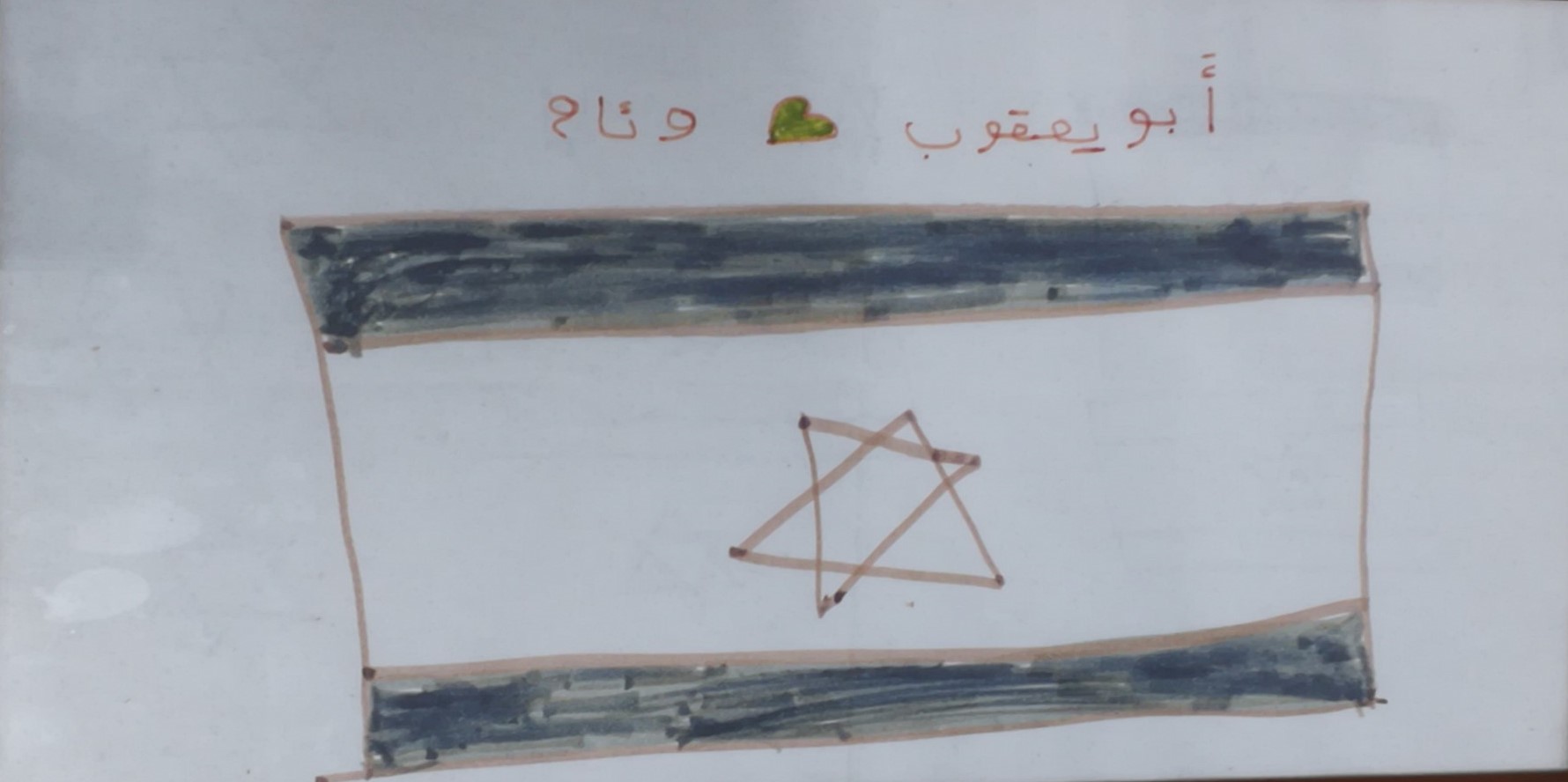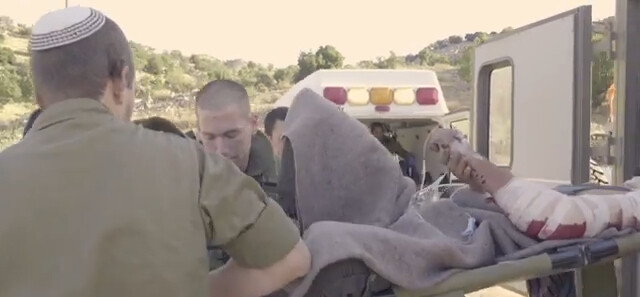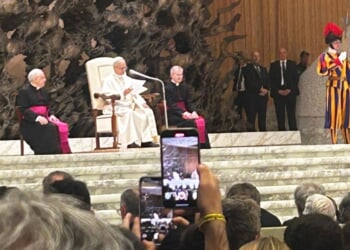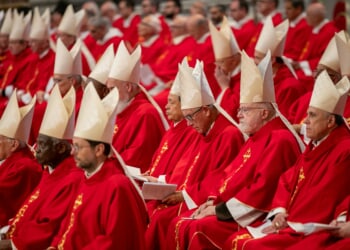Lt. Col. (Res.) Eyal Dror served 24 years in the Israel Defense Forces, most recently as commander of Operation Good Neighbor in the Golan Heights. According to Dror’s soon-to-be-published book, Embracing the Enemy: The Inside Story of Israel’s Secret Humanitarian Mission to Rescue Syrian Civilians from Civil War, during Operation Good Neighbor (2016-2018), Israel treated approximately 1,500 Syrian children in Israeli hospitals, 8,000 Syrians in a military field clinic in Syria, and assisted in the birth of over 1,000 Syrian babies in a maternity ward and various clinics in Syria.
Dror is a doctoral student at Haifa University in the Department of Education and Leadership and an international lecturer on Middle East issues, humanitarian aid, cooperation, and trust building. Dror spoke with the author on Operation Good Neighbor, in light of recent events in Syria and his book, available now on Kindle and in paperback in June.
The following is an exclusive Q&A between The American Spectator contributor Steve Postal and IDF Lt. Colonel (Res.) Eyal Dror.
Postal: What was your role in Operation Good Neighbor, and what were its key objectives?
Dror: I established the military unit that initiated Operation Good Neighbor in 2016, following three years of Israel having evacuated wounded from southern Syria during the Syrian Civil War. The Operation was designed to counter the problem of Hezbollah, al-Qaeda, ISIS and other jihadi groups approaching Israel’s border during that time. (RELATED: Putting Jihadists on Notice, Israel Racks Up Critical Win in Syria)
Israel understood that it could either engage these groups militarily or try to win the hearts and minds of Syrians by other means. We knew that Syrians were brainwashed to hate Israel, and we had the opportunity to change this mindset by saving their lives. We hoped that by saving them, non-jihadist Syrians would learn that Israelis are not their enemies, and that they would help Israel ensure that Israel’s enemies don’t come closer to our border. (RELATED: New Syria Embracing Education of Hate)
The Syrians were thankful for what we did. We not only brought them safety and security, but also changed how Syrians think of us.
Postal: Was there any event or events during the Syrian Civil War that particularly inspired Operation Good Neighbor to begin?
Dror: During the Syrian Civil War, our border with Syria went from one that was very quiet to one that posed great challenges for Israel. We also witnessed how Syrians were affected by the war, for example, the villages east of Mount Hermon were attacked severely by the Syrian army. We focused our aid on helping villages in Southern Syria that suffered the most. (RELATED: Approach Syria With a Tragic Mind)
Postal: How is Operation Good Neighbor similar to and different from humanitarian efforts that Israel has conducted in the past in other countries?
Dror: The Operation was similar in that Israel provided aid and saved lives. But it differed in that we provided humanitarian aid to an enemy country, to people living in that enemy country at severe risk to our own lives.
Postal: To what extent was Operation Good Neighbor an initiative of Israel’s government, versus Israeli NGOs? How did the Israeli government and the NGOs work together?
Dror: Operation Good Neighbor was neither an initiative of the NGOs nor of the government, though it was later approved by the government. It was an initiative of the Israel Defense Forces (IDF), because those that were on the border that had the initial humanitarian interactions with Syrians were IDF soldiers.
One of my missions after the government approved the Operation was to find NGOs that added value, be it with money, equipment or knowledge. I was able to find several NGOs, which included Muslim, Jewish, Christian, and Israeli NGOs, and I gave each of these a mission within the larger Operation. I coordinated all missions with the IDF and Israel’s government offices.
For example, we used Friendships Unlimited, a Christian NGO, to operate a field clinic in Syria, given its prior experience operating field clinics. We tasked Rahma Relief, a Muslim NGO of Syrian ex-patriates, with providing equipment and medicine. We also needed to coordinate with Israeli government agencies to ensure that the containers for medications and other supplies could arrive in the Golan Heights. Additionally, we coordinated visas for people coming to assist from outside of Israel.
What was most remarkable was here I was, a Jewish Israeli officer leading a team of Christians, Muslims, and Jews to save Syrians. A unique event in the history of the world.
Postal: Can you describe the process of getting support for this initiative from Syrians themselves? How did you gain trust?
Dror: Trust is built by actions. We built trust night by night, in good weather and in heavy rain. When the Syrians saw that we allowed them to enter Israel to treat their children, and we didn’t publish this fact until after 350 humanitarian operations, the Syrians knew they could trust us. We treated the Syrians we worked with as colleagues and built an amazing partnership.
Postal: Were certain groups in Syria (ethnic, religious, etc.) more supportive of Operation Good Neighbor than others?
Dror: The population we supported was the Sunnis. We did not support the Sunni population that was controlled by ISIS due to security reasons, and we didn’t support the Druze because they were loyal to the Syrian regime and refused our aid.
Postal: Were there any security concerns about the Assad regime, Hezbollah, Iran, ISIS, al-Nusra attacking Israel’s field hospitals or relief efforts? How were these concerns addressed?
Dror: Every night, we thought it could be the last night of operations, as we were operating in a field very close to our enemies. While the Assad regime didn’t have a real presence where we were, there was still a risk that they could have sent their proxies to attack us, and there were lots of radical groups close to us. But even though we were there as a humanitarian operation, we were secured by the best forces of the IDF.
Postal: Do you think Israel can/should repeat Operation Good Neighbor, given Israel’s recent attack on the new Syrian regime in defense of the Druze, and Israel’s treatment of wounded Druze in Israel?
Dror: In contrast to the time of Operation Good Neighbor, Israel is currently providing aid to the Druze. Whereas before, the Druze were loyal to the Assad regime, now Abu Mohammad al-Julani’s [currently known as Ahmed al-Shaara] regime and those sympathetic to him are fighting the Druze. Because the Druze are now afraid of being slaughtered by al-Julani and his fellow jihadists, the Druze are now asking for support from and finding it with Israel.
Israel is also currently operating a field clinic for both the Sunni population and the Druze, with the assistance of Friendship Unlimited. Al-Julani’s regime does not allow any Israeli aid, even though it has said that Israel is not an enemy or a threat. However, I believe these groups still need the aid and that Israel should continue to provide it.
Postal: What were some of your favorite memories from the Operation?
Dror: In my book, and on my X account, there is picture that a Syrian girl drew for me. She was one of those saved in Operation Good Neighbor, treated in a hospital in Israel for months which saved her from death. The picture shows an Israeli flag, and above it she wrote her name, a heart sign, and my name in Arabic, and dedicated the picture to me.

Drawing by a Syrian girl and beneficiary of Operation Good Neighbor, dedicated to Lt. Col. (Res.) Eyal Dror. The drawing features an Israeli flag, the Syrian girl’s name in Arabic, a heart sign, and Dror’s name in Arabic.
Seeing that picture almost made me cry, especially knowing that her parents were educated to hate me. My father’s cousin was killed by a Syrian sniper while serving in the 1973 Yom Kippur War. While our countries were once at war, Israel went on to orchestrate this massive humanitarian mission to Syrians, and now we continue to save their lives. It is a remarkable story.
Postal: In light of reported normalization talks between Syria and Israel, what do you think the prospects of peace are between two countries now?
Dror: Generally speaking, following the October 7 massacre, Israel has had enough of false promises. While al-Julani’s statements are good, I remain suspicious of him and his associates. We all saw what his people did to the Alawite, Christian, and Druze communities. Al-Julani has talked about liberating not only the Golan Heights, but Palestine and Jerusalem as well. I am not convinced that he is no longer a jihadist. Of course, I hope for a better future, but al-Julani must prove himself not by his words but by his actions. For starters, threatening his own people for receiving aid from Israel is not a good sign. (RELATED: Syria’s New Leader Will Bring Jihad, Not Peace)
Postal: What do you think Operation Good Neighbor’s legacy will be/how will the Operation be remembered?
Dror: Operation Good Neighbor will be remembered as the first time that Israel provided aid to Syrians, saving their lives while they were being slaughtered by their own regime. Additionally, our mission made it possible for future peace between Syria and Israel, as there are now many Syrians who know the true face of Israel and what we have done for them.
Most importantly, Operation Good Neighbor was the right thing to do. Israel had the opportunity to save lives, and we did. Many Syrians now see us in a different light, and I believe they will not forget this. When I talk with Syrians abroad, I see this and realize that we did the right thing.
The author would like to thank Lt. Col. (Res.) Eyal Dror for participating in this interview.
READ MORE from Steve Postal:
China Ratchets Up Espionage War Against Taiwan
The Trump Administration’s Innovative War on Drugs
Israel–Hamas War Now at a Turning Point in Gaza


![Trump Posts Hilarious Pope Meme, Leftists Immediately Melt Down [WATCH]](https://www.right2024.com/wp-content/uploads/2025/05/Trump-Posts-Hilarious-Pope-Meme-Leftists-Immediately-Melt-Down-WATCH-350x250.jpg)



![Bessent Exposes Media Lies About April’s Stock Market Performance [WATCH]](https://www.right2024.com/wp-content/uploads/2025/04/Bessent-Exposes-Media-Lies-About-Aprils-Stock-Market-Performance-WATCH-350x250.jpg)


![Taylor Swift Slams Subpoena in Blake Lively’s Explosive Legal Battle [WATCH]](https://www.right2024.com/wp-content/uploads/2025/05/1746936931_Taylor-Swift-Slams-Subpoena-in-Blake-Livelys-Explosive-Legal-Battle-350x250.jpg)
![Eric Adams Pushes Back on Schumer’s Coast Guard Cutback Claims After Brooklyn Bridge Tragedy [WATCH]](https://www.right2024.com/wp-content/uploads/2025/05/Eric-Adams-Pushes-Back-on-Schumers-Coast-Guard-Cutback-Claims-350x250.jpg)






